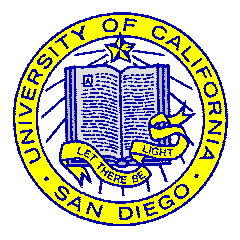Sequential quadratic programming (SQP) methods for nonlinearly constrained optimization typically use a merit function to enforce convergence from an arbitrary starting point. We define a smooth augmented Lagrangian merit function in which the Lagrange multiplier estimate is treated as a separate variable, and inequality constraints are handled by means of non-negative slack variables that are included in the linesearch. Global convergence is proved for an SQP algorithm that uses this merit function. We also prove that steps of unity are accepted in a neighborhood of the solution when this merit function is used in a suitable superlinearly convergent algorithm. Finally, some numerical results are presented to illustrate the performance of the associated SQP method.
 Return To PEG's
Home Page.
Return To PEG's
Home Page.